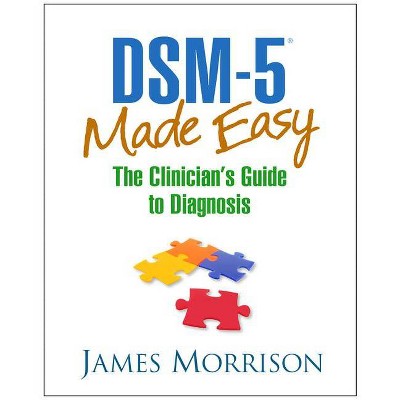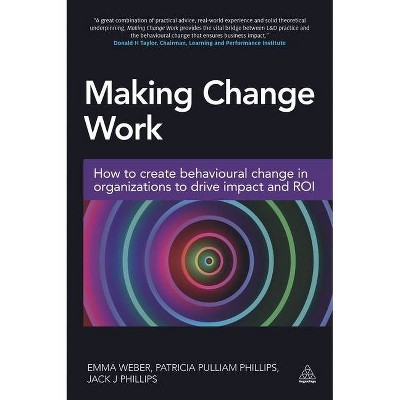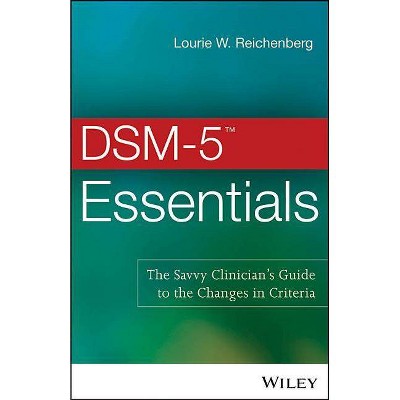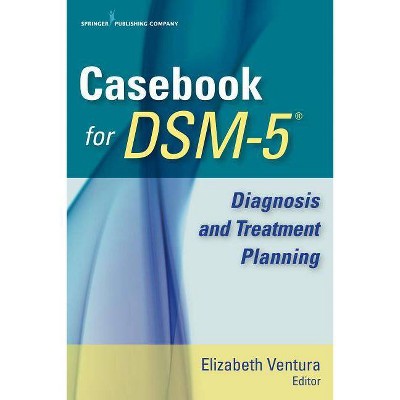Making the Dsm-5 - by Joel Paris & James Phillips (Paperback)
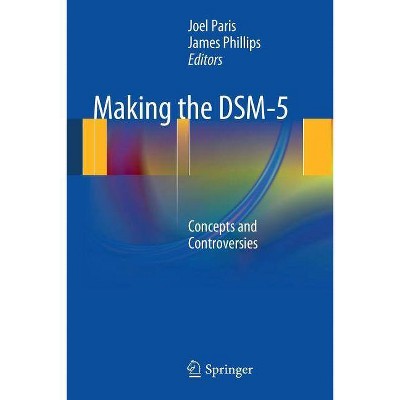
Similar Products
Products of same category from the store
AllProduct info
<p/><br></br><p><b> About the Book </b></p></br></br>Highlighting some of the practical and conceptual problems which underly DSM-5, this timely book gathers a group of prominent experts to analyze debate about psychiatric nosology and to appraise the state of the current diagnostic system.<p/><br></br><p><b> Book Synopsis </b></p></br></br><p>Part 1: Historical/Ideological Perspectives</p><p> </p><p>1. The History of DSM</p><p> Edward Shorter</p><p> </p><p>2. Considering the Economy of DSM Alternatives</p><p> John Z. Sadler</p><p>3. The Ideology behind DSM-5</p><p> Joel Paris</p><p> </p><p>Part 2: Ideological <i>and</i> Conceptual Perspectives</p><p> </p><p>4. The Biopolitics of Defining "Mental Disorder"</p><p> Warren A. Kinghorn</p><p> </p><p>5. Establishing Normative Validity for Scientific Psychiatric Nosology: The Significance of Integrating Patient Perspectives</p><p> Douglas Porter</p><p> </p><p>6. The Paradox of Professional Success: Grand Ambition, Furious Resistance, and the Derailment of the DSM-5 Revision</p><p> Owen Whooley and Allan V. Horwitz</p><p> </p><p>Part 3: Conceptual Perspectives</p><p> </p><p>7. DSM in Philosophyland: Curiouser and Curiouser</p><p> Allen Frances</p><p> </p><p>8. Overdiagnosis, Underdiagnosis, Synthesis: A Dialectic for Psychiatry and the DSM</p><p> Joseph M. Pierre</p><p> </p><p>9. What does Phenomenology Contribute to the Debate about DSM-5</p><p> Aaron Mishara and Michael A. Schwartz</p><p> </p><p>10. The Conceptual Status of DSM-5 Diagnoses</p><p> James Phillips</p> <p>11. Conclusion</p><p> James Phillips</p><p/><br></br><p><b> From the Back Cover </b></p></br></br><p>In 2013, the American Psychiatric Association published the 5<sup>th</sup> edition of its <i>Diagnostic and Statistical Manual of Mental Disorders</i> (DSM-5). Often referred to as the "bible" of psychiatry, the manual only classifies mental disorders and does not explain them or guide their treatment. While science should be the basis of any diagnostic system, to date, there is no knowledge on whether most conditions listed in the manual are true diseases. Moreover, in DSM-5 the overall definition of mental disorder is weak, failing to distinguish psychopathology from normality. In spite of all the progress that has been made in neuroscience over the last few decades, the psychiatric community is no closer to understanding the etiology and pathogenesis of mental disorders than it was fifty years ago.</p><p> </p><p>In <i>Making the DSM-5</i>, prominent experts delve into the debate about psychiatric nosology and examine the conceptual and pragmatic issues underlying the new manual. While retracing the historic controversy over DSM, considering the political context and economic impact of the manual, and focusing on what was revised or left unchanged in the new edition, this timely volume addresses the main concerns of the future of psychiatry and questions whether the DSM legacy can truly improve the specialty and advance its goals. </p><p/><br></br><p><b> Review Quotes </b></p></br></br><br><p>From the reviews: </p><p>"Making the DSM-5, is an edited book comprising 11 chapters, eight of which were written by individuals who listed medical school affiliations. ... is a consistently engaging and thought-provoking read. ... the authors address issues that the leaders of the DSM-5 process generally seemed to ignore. ... should be required reading of any task force members who attempt to create the DSM-6." (Roger Blashfield, PsycCRITIQUES, Vol. 59 (14), April, 2014)</p>"This book addresses the formation of the DSM-5 and the problems with the manual itself. ... The audience includes anyone interested in the field of mental health and the DSM-5 in particular. ... It will definitely open readers' eyes to how little we still know and how artificial our constructs are for understanding mental illness. It is a short book and I would highly recommend taking the time to read it." (Brett C. Plyler, Doody's Book Reviews, November, 2013)<br><p/><br></br><p><b> About the Author </b></p></br></br><p>Joel Paris, MD, is Professor and Chair of the Department of Psychiatry at McGill University, and Research Associate in the Department of Psychiatry at Sir Mortimer B. Davis Jewish General Hospital. </p> <p>James Phillips, MD, is Associate Clinical Professor of Psychiatry at the Yale School of Medicine. He is in the private practice of general and forensic psychiatry. In the Yale department he is involved in residency training, the Hispanic Clinic, and the Global Mental Health Committee. He has a long involvement with the Association for the Advancement of Philosophy and Psychiatry, serving as Secretary and as editor of the Bulletin of AAPP.</p>
Price History
Price Archive shows prices from various stores, lets you see history and find the cheapest. There is no actual sale on the website. For all support, inquiry and suggestion messages communication@pricearchive.us
